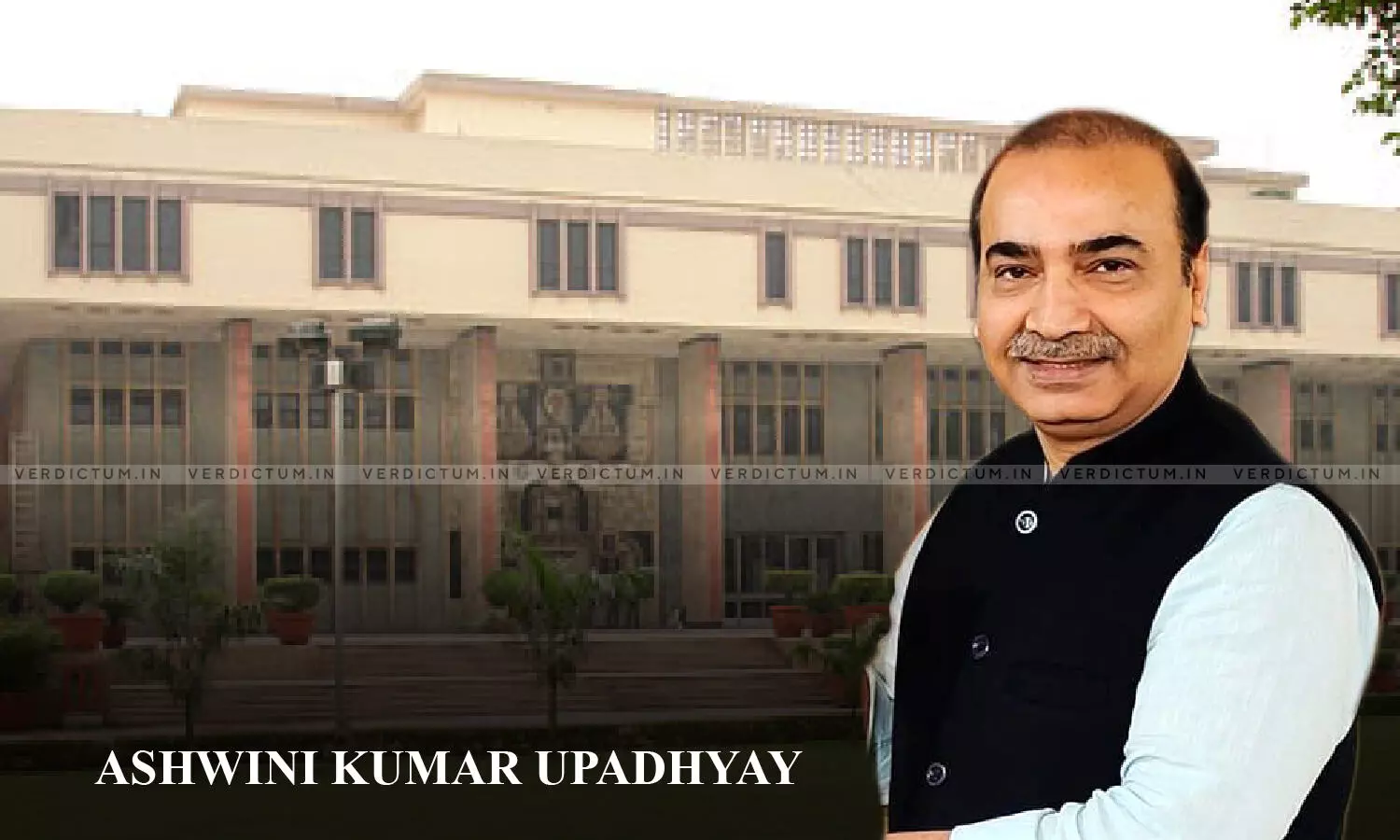
Complainant Can’t Be Forced To Undergo Deception Detection Tests Such As Brain Mapping, Polygraph Or Narco Analysis: Delhi HC Rejects PIL
 |
|The Delhi High Court while rejecting the Public Interest Litigation (PIL) filed by Advocate Ashwini Kumar Upadhyay has held that a complainant cannot be forced to undergo deception detection tests such as brain mapping test, polygraph test, narco analysis, lie detector tests, etc.
A Division Bench comprising Chief Justice Satish Chandra Sharma and Justice Subramonium Prasad observed, “If, after investigation, the police finds that no case is made out against the accused, the Police can file a closure report under Section 174 Cr.P.C. The Constitution provides for special provisions for an accused. In case of a false complaint there are other remedies which are available in law. In view of the above, a complainant definitely cannot be forced to go through deception detection tests such as brain mapping test, polygraph test, narco analysis, lie detector tests, etc. to ascertain the veracity of the complaint before the investigation starts against the accused.”
The Bench said that the petition is completely misplaced and it is well settled that courts do not interfere with the investigation as an investigation is purely the domain of investigating agency.
The petitioner appeared in person while ASG Chetan Sharma, CGSC Anurag Ahluwalia, GP Kritagya Kumar Kait, and Standing Counsel Santosh Kumar Tripathi appeared for the respondents.
In this case, a PIL was filed under Article 226 of the Constitution of India for a direction to the Police to subject a complainant to undergo scientific tests like Narco Analysis, Polygraphy, and Brain mapping during the investigation to prove the allegation and only then record his/her statement in order to control fake cases to secure right to life, liberty, dignity, and speedy justice. The petitioner came across a case wherein a complaint was filed against a journalist under the SC-ST Act though the complainant and the accused did not know each other.
According to the petitioner, the journalist was harassed and humiliated, and had the complainant undergone a brain mapping test before the start of the investigation, the journalist would not have had to undergo the humiliation or arrest. It was stated by the petitioner that with the growth of technology, scientific tests like Narco Analysis, Polygraphy, Brain Mapping, etc., can be used to wipe out fake cases and that such techniques are used in developed countries like the USA, China, Singapore, etc. but are not being used in our country.
The High Court in the above context noted, “After a complaint is reduced to writing in the format as prescribed under Section 154 of the Cr.P.C, the police starts investigating the offence. The Cr.P.C also lays down as to how the investigation has to be conducted and how the statements of witnesses, including the complainant, etc. are to be recorded.”
The Court further noted that the prayer which is sought by the petitioner, if accepted, can result in further humiliation of the complainant, more so if the complainant is a lady for whom special protection/provisions have been made in the Cr.P.C.
“It is for the investigating agencies to uncover the truth. … The issue regarding the reliability of brain mapping test, polygraph test, Narco analysis, lie detector tests, etc. is still under lot of debate and a writ of mandamus can certainly not be passed by the Courts to the authorities to conduct such tests in order to ascertain the veracity of the complainant”, said the Court.
The Court also said that as per the 277th Report of the Law Commission, even the Commission has not recommended that a complainant must undergo scientific tests like Narco Analysis, Polygraphy, Brain mapping, etc. to ascertain the veracity of the complaint and the Report only states that there must be a more effective mechanism and special legal provisions to adequately compensate an accused who is a victim of wrongful prosecution.
“This certainly does not mean that a victim or a complainant must be forced to undergo scientific tests like Narco Analysis, Polygraphy and Brain mapping and satisfy the police that the complaint is genuine before the investigation starts”, concluded the Court.
Accordingly, the Court dismissed the petition.
Cause Title- Ashwini Kumar Upadhyay v. Union of India & Ors. (Neutral Citation: 2023:DHC:4412-DB)